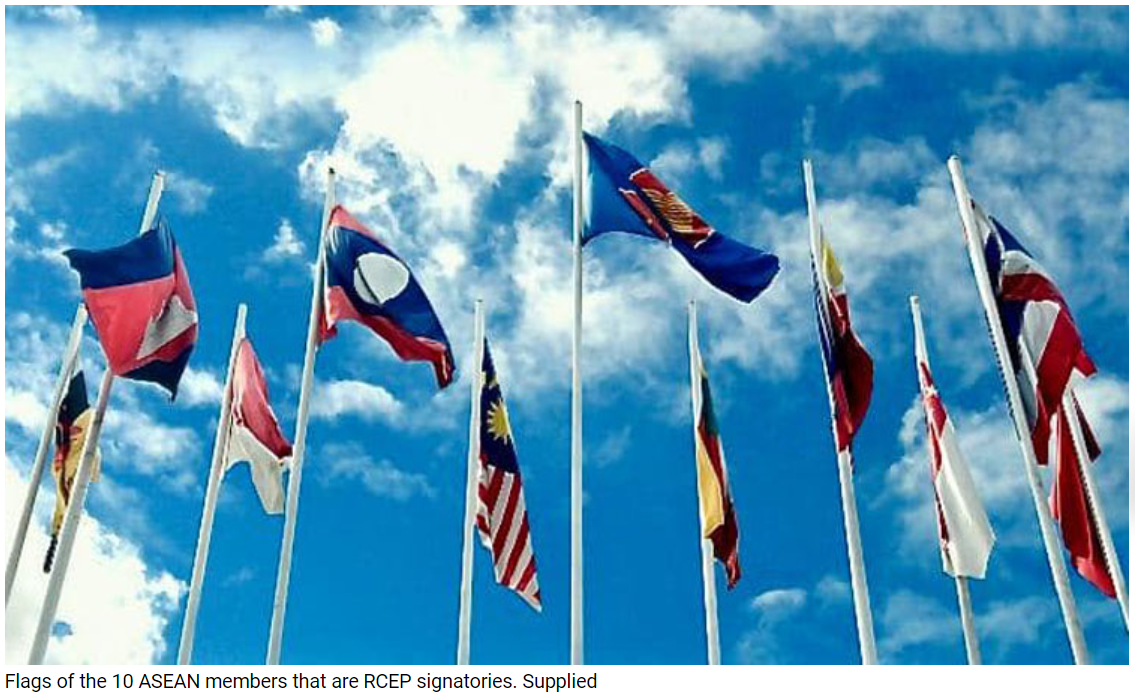‘Businesses need more information on how to profit from trade deal’
A Southeast Asian think-tank is trying to help the region’s businesses to take advantage of the world’s biggest trade deal, which is likely to come into force early next year.
The Economic Research Institute for ASEAN and East Asia (ERIA), backed by the Australian government, has carried out a five-part survey to find out how well the private sector understands the Regional Comprehensive Economic Partnership (RCEP).
The 10 members of ASEAN have been talking for eight years with China, Australia, New Zealand, Japan and South Korea about creating a trading bloc comprising one third of the world’s population, gross domestic product and exports.
RCEP will take effect 60 days after it has been ratified by six ASEAN countries and three non-ASEAN nations. So far, ASEAN members Singapore and Thailand have signed-off on it, while Cambodia’s National Assembly has approved a bill authorising ratification. China and Japan have also inked the deal. “We just completed the development of the Cambodian work plan for the implementation of one of the 20 chapters of RCEP and realised really little is known of the agreement in Cambodia,” said Sven Callebaut, who advises Southeast Asian governments, donors and regional organisations as part of ERIA, and works as an international trade adviser to Cambodia’s Trade Ministry. The five surveys asked small and medium enterprises (SMEs) which part of RCEP they were most interested in learning about, what information they needed in order to export to or import from new markets, what the main “pain point” was for cross-border e-commerce (for example, customs clearance and international e-payments), what support they needed to prepare for RCEP and which markets they were considering tapping first.
As many as 10,000 people viewed the surveys on networking site LinkedIn, with respondents indicating that cross-border issues, customs and trade facilitation were the main areas where they needed support.
“The responses show that companies interested in expanding opportunities would seek market intelligence by themselves and not necessarily through industry representations [or] business associations, although they expect government authorities to be more transparent,” Callebaut said. “The text of the agreement was kept confidential for a very long time, so SMEs had little clue what to expect and how to prepare,” he added.
ERIA will use the results of the survey to organise a series of public-private discussions on RCEP and events aimed at gauging the potential of RCEP for specific industries. The research institute is also considering drawing up a “readiness checklist” for businesses to assess how prepared they are to use RCEP’s uniform set of simplified rules. Callebaut says Cambodia may not be the biggest winner in RCEP because of its existing preferential trade arrangements and narrow production and export base but he says the partnership’s long-term trade opportunities and benefits will enable Cambodia to modernise and diversify its economic structure.
“Cambodia should look beyond low value-added industries and prioritise inward FDI (foreign direct investment) that might expand medium-skilled and high-skilled industries to capture more value and deepen integration into regional and global value chains,” Callebaut said. “Agro-processing and manufacturing firms from Japan and South Korea should be targeted. Strong backward linkages and spill-over effects from investment will also assist in developing domestic industrial capacity in Cambodia,” he said.
Cambodia’s Commerce Ministry says it expects RCEP to come into force as soon as Jan 1 next year.
Source: https://www.khmertimeskh.com/50894945/businesses-need-more-information-on-how-to-profit-from-trade-deal/


 English
English




